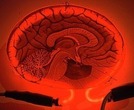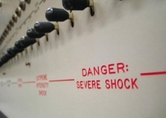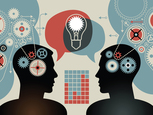Psychological Effects of Power, Wealth, and Privilege

Power robs the brain of empathy
From www.digitaljournal.com - September 24, 2013 Researchers have some new insights into how power diminishes a person's capacity for empathy. According to scientists, a sense of power shuts down a part of the brain that helps us connect with others. 
Having Power Diminishes Your Empathy For Others
From www.progressiveimpact.org - September 2, 2013 Douglas LaBier, Ph.D. New research shows that increased power in an organization diminishes capacity for empathy. Several research studies have shown that increasing power in an organization (or in any kind of relationship) tends to diminish capacity for empathy, compassion, and seeing another person’s perspective. This is especially damaging to effective leadership of people subordinate to those in power. Studies have shown that increased power diminishes activity of your “mirror neurons,” which provide the sense of connection with another person’s experience, and fuels empathy. Here’s the latest study that sheds more light on what happens. It shows the need for helping leaders develop and strengthen their capacity to connect with others’ reality and experience, which helps counter the tendency towards self-absorption in one’s own perspective, when one is in a higher-power status. 

Does power lead to corruption?From www.theguardian.com - December 18, 2014
Scientific research shows that, whatever an individual’s personality type, power leads to antisocial decisions – and testosterone plays an important part too. 
Misused power can hurt us all
From www.offalyexpress.ie - July 17, 2013 This was a social psychology experiment which appeared to show, beautifully in fact, how much social situations can influence people's behaviour. 
People new to power more likely to be vengeful
From medicalxpress.com - November 19, 2013 New research has shown that people who are not accustomed to holding power are more likely to be vengeful when placed in charge. Experienced power-holders, on the other hand, were found to be more tolerant of perceived wrongdoing. 
Does Power Make you Mistrusting?
From www.psychologytoday.com - November 27, 2013 Power has its benefits--but it can be lonely at the top. Breaking rules makes you seem powerful
May 20, 2011 SAGE Publications When people have power, they act the part. Powerful people smile less, interrupt others and speak in a louder voice. When people do not respect the basic rules of social behavior, they lead others to believe that they have power, according to a new study. Large and in charge: Powerful people overestimate their own height
January 17, 2012 Cornell University The psychological experience of power makes people feel taller than they are, according to new research. It seems there is actually a physical experience that goes along with feeling powerful. Powerful People Feel Taller Than They Are
Jan. 23, 2012 — After the huge 2010 oil spill in the Gulf of Mexico, the chairman of BP referred to the victims of the spill as the "small people." He explained it as awkward word choice by a non-native ... read more M. M. Duguid, J. A. Goncalo. Living Large: The Powerful Overestimate Their Own Height. Psychological Science, 2011; 23 (1): 36 DOI:10.1177/0956797611422915
|
|







